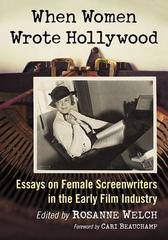Watch this entire presentation
Subscribe to Rosanne’s Channel and receive notice of each new video!
Transcript:
One of my favorite examples of how important it is to see culture travel through these streaming services is the film — it’s called Coco in the United States. It’s called Vivo here. When my cousins — my cousins are from Sicily — my grandparents immigrated to the United States from Sicily and their relatives stayed behind. So I’m related and connected to third and fourth cousins who live there. They came to visit me at Christmas this year and we were discussing Halloween, which I laughed at because I noticed some Halloween decorations in places I traveled around town today, and my cousin said in Italy Halloween is not very important because of course being a Catholic country what is important is that this is the Day of All Souls and so it’s a religious holiday. Only in you know only in Italy is that important and I said oh haven’t you ever heard of the Day of the Dead in Mexico and she had not because in Italy they haven’t studied Mexican culture. So I mentioned this movie which she had never seen but her 10-year-old son had seen it. The problem was on Netflix it was only running in English or Spanish and they’re Italian but their 10-year-old is studying Spanish in school. So at my house, we turned on Netflix. We watched the movie in Spanish with English subtitles to remind me because I’d seen it but I wanted to remember the story and any time the Italians lost track of this Spanish language we would pause and the ten-year-old would translate the Spanish into Italian and we’d all catch up and continue and in that way, they learned the story of the Day of the Dead — Dia de Los Muertos through this movie and they were so moved by the theme of the movie which again is such a universal theme that we should honor our ancestors and that we owe it to them right to live up to their history. It was a beautiful example of what Netflix is capable of doing — what streaming services are capable of doing for us and how important story is.
Watch this entire presentation
A Note About This Presentation
A clip from my keynote speech at the 10th Screenwriters´(hi)Stories Seminar for the interdisciplinary Graduation Program in “Education, Art, and History of Culture”, in Mackenzie Presbyterian University, at São Paulo, SP, Brazil, focused on the topic “Why Researching Screenwriters (has Always) Mattered.” I was especially pleased with the passion these young scholars have toward screenwriting and it’s importance in transmitting culture across the man-made borders of our world.
To understand the world we have to understand its stories and to understand the world’s stories we must understand the world’s storytellers. A century ago and longer those people would have been the novelists of any particular country but since the invention of film, the storytellers who reach the most people with their ideas and their lessons have been the screenwriters. My teaching philosophy is that: Words matter, Writers matter, and Women writers matte, r so women writers are my focus because they have been the far less researched and yet they are over half the population. We cannot tell the stories of the people until we know what stories the mothers have passed down to their children. Those are the stories that last. Now is the time to research screenwriters of all cultures and the stories they tell because people are finally recognizing the work of writers and appreciating how their favorite stories took shape on the page long before they were cast, or filmed, or edited. But also because streaming services make the stories of many cultures now available to a much wider world than ever before.
Many thanks to Glaucia Davino for the invitation.
* A portion of each sale from Amazon.com directly supports our blogs
** Many of these books may be available from your local library. Check it out!
† Available from the LA Public Library
Podcast: Play in new window | Download
Subscribe: RSS
![34 Coco and Exposure To Different Cultures from Why Researching Screenwriters Has Always Mattered [Video] (2 mins)](https://rosannewelch.com/wp-content/uploads/2020/11/rmw-sao-paolo-34.png)
![33 The First Six Years from Why Researching Screenwriters Has Always Mattered [Video] (49 seconds)](https://rosannewelch.com/wp-content/uploads/2020/10/rmw-sao-paolo-33.png)




![32 You Should Write What (Emotions) You Know from Why Researching Screenwriters Has Always Mattered [Video] (28 seconds)](https://rosannewelch.com/wp-content/uploads/2020/10/rmw-sao-paolo-32.png)


![31 If You Censor Storytellers…You Censor Culture from Why Researching Screenwriters Mattered [Video] (36 seconds)](https://rosannewelch.com/wp-content/uploads/2020/10/rmw-sao-paolo-31.png)


![30 Michael Wilson – Censored from Why Researching Screenwriters (has Always) Mattered [Video] (34 seconds)](https://rosannewelch.com/wp-content/uploads/2020/10/rmw-sao-paolo-30.png)